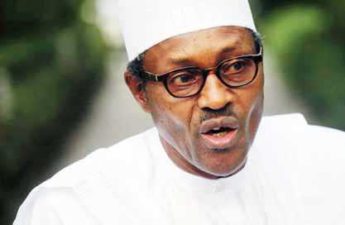The Nigerian Supreme Council for Islamic Affairs (NSCIA) has described a welcome development, the integration of non-interest financing in the Central Bank of Nigeria’s intervention programme done in effort to lift 80 percent of Nigerians out of poverty by the year 2020.
The Council, under the directive of its President General Alhaji Muhammad Sa’ad Abubakar, Sultan of Sokoto, spoke in a statement issued on Thursday and signed by its Deputy Secretary General, Professor Salisu Shehu, copy of which was sent to The DEFENDER reacting to the CBN’s release of guidelines for the non-interest version of all its intervention programmes.
The initiative covers the Anchor Borrowers Programme (ABP), Agri-Business, Small and Medium Enterprises Investment Scheme (AGSMEIS), Creative Industry Financing Initiative, Micro, Small and Medium Enterprise Development Fund, Real Sector Support Facility (RSSF) and Credit Support for the Healthcare Sector.
The NSCIA noted that, “For decades, Nigerian Muslims have been grossly marginalized in the country’s financial sector and other growth triggering financial interventions of the CBN due largely to the interest element that is usually involved in the schemes. For Muslims, who constitute well over half of the country’s population, the question of avoiding interest is non-negotiable, and the majority of Muslims would opt to live in poverty rather than devour interest and face the wrath of their Creator.
“In the absence of non-interest finance, the result has been a high rate of financial exclusion among Muslims, as high as over 60% in some Muslim majority communities. This leads to worsening incidence of abject poverty. The implication is that without non-interest alternatives, the CBN can hardly attain its goal of 80% financial inclusion earlier targeted for 2020, nor can any meaningful poverty alleviation and economic empowerment programme be actualized in the foreseeable future,” it said.
It however applauded the integration of the non-interest version which shows that the CBN is serious about driving the policy of government in bettering personal economy of citizens in the Africa’s most populous nation.
“The Nigerian Supreme Council for Islamic Affairs (NSCIA), under the leadership of its President-General, His Eminence the Sultan of Sokoto, Alhaji Muhammad Sa’ad Abubakar, CFR, mni, views the integration as a welcome development, a bold step towards engendering inclusive growth and a proactive mechanism for averting a looming recession threatening the global economy as a consequence of the COVID-19 pandemic.
“While praying for the effective implementation of the guidelines, the NSCIA wishes to congratulate the CBN and by extension the Federal Government of Nigeria (FGN) for achieving this remarkable milestone.
“The NSCIA suggests that, given the indispensability of financial literacy to achieving financial inclusion and economic recovery and growth, the CBN should use all relevant agencies and avenues, including the networks of the National Orientation Agency, radio and television programmes, among others, to educate the public on the importance of these interventions, and the procedures for accessing them. The procedures should be made as accessible as possible to enable even the poorest of the poor to benefit from the schemes.
“Meanwhile, as a step towards assisting the FGN and the CBN in achieving the success of the post-pandemic economic recovery, His Eminence, the President-General of NSCIA, directs all State Councils of Islamic Affairs, as well as all other Islamic organisations to design and implement sensitization and mobilization programmes for farmers, businessmen, and other eligible citizens. Imams and the ‘Ulama’ should use their sermons, lectures, lessons, radio and television programmes to educate the Muslim community on the imperative of utilizing the interventions.
“To this end, His Eminence directs all State Councils to, after studying the details of the guidelines, organize trainings for Imams, ‘Ulama’, leaders of Islamic organizations, trade unions and farmers associations, as well as other key stakeholders, on the value and procedures of accessing these important interventions.
“The general public is hereby advised to take this new initiative as a rare opportunity, and optimally utilize it for actualisation of productive purposes it is meant to serve, keeping in mind that this is not a free money. For a Muslim, a debt is an amanah. In addition to the worldly consequences of diverting the resources to consumption purposes, they should remember that they would account for how they handle and manage it on the Day of Judgement.”




